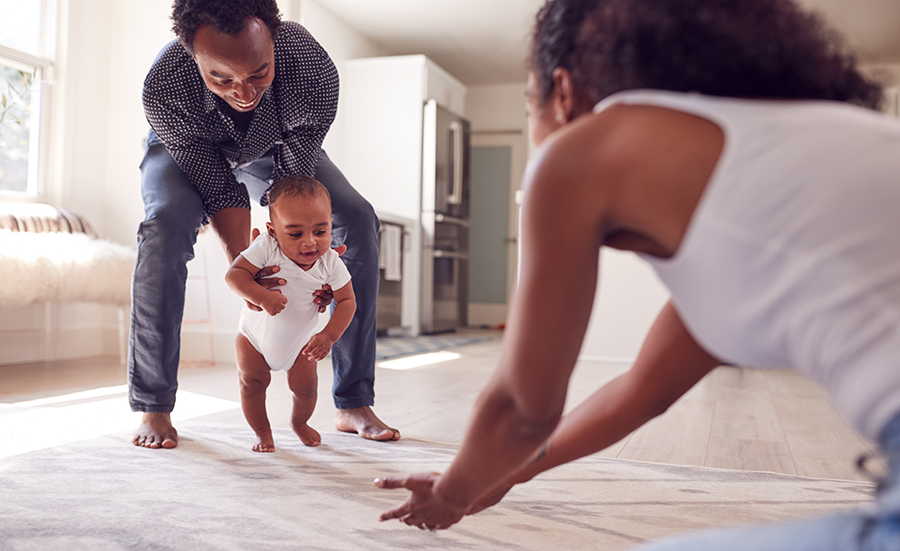

Expert health content provided
by Harvard Health Publishing.
Safety advice for babies on the move
A baby walker might seem like a good idea. You might have friends or family members who use these devices with their little ones. But doctors urge parents not to use them. In fact, the American Academy of Pediatrics strongly recommends not using baby walkers.
Why? Each year, thousands of children less than 15 months old are treated in emergency rooms for injuries related to walkers. Most injuries happen when children fall down stairs in a walker.
Walkers have multiple safety issues
But stairs aren’t the only problem. Children in walkers get their fingers caught, pull things down on themselves, or grab dangerous things that would otherwise be out of reach. Children can fall out of walkers and get hurt. They have drowned when they scooted into a pool or spa. Babies also get injured from toys attached to a baby walker.
Also, baby walkers don’t help
Parents buy walkers to help babies learn to walk faster. But experts say walkers can actually delay your baby from walking. Babies need to learn how to pull up to stand, and then to balance and take steps without support. When babies are plopped into walkers, they don’t learn any of that. They learn by being put on the floor with something they can pull up on, like a couch or a caregiver.
It’s true that babies like walkers and play happily in them. But there are safer ways to get babies upright, such as stationary standers. Also, babies need constant supervision as they learn to move. It’s important to stay within arm’s reach of your baby.
Because of the risks, it’s best to say no to a baby walker.
